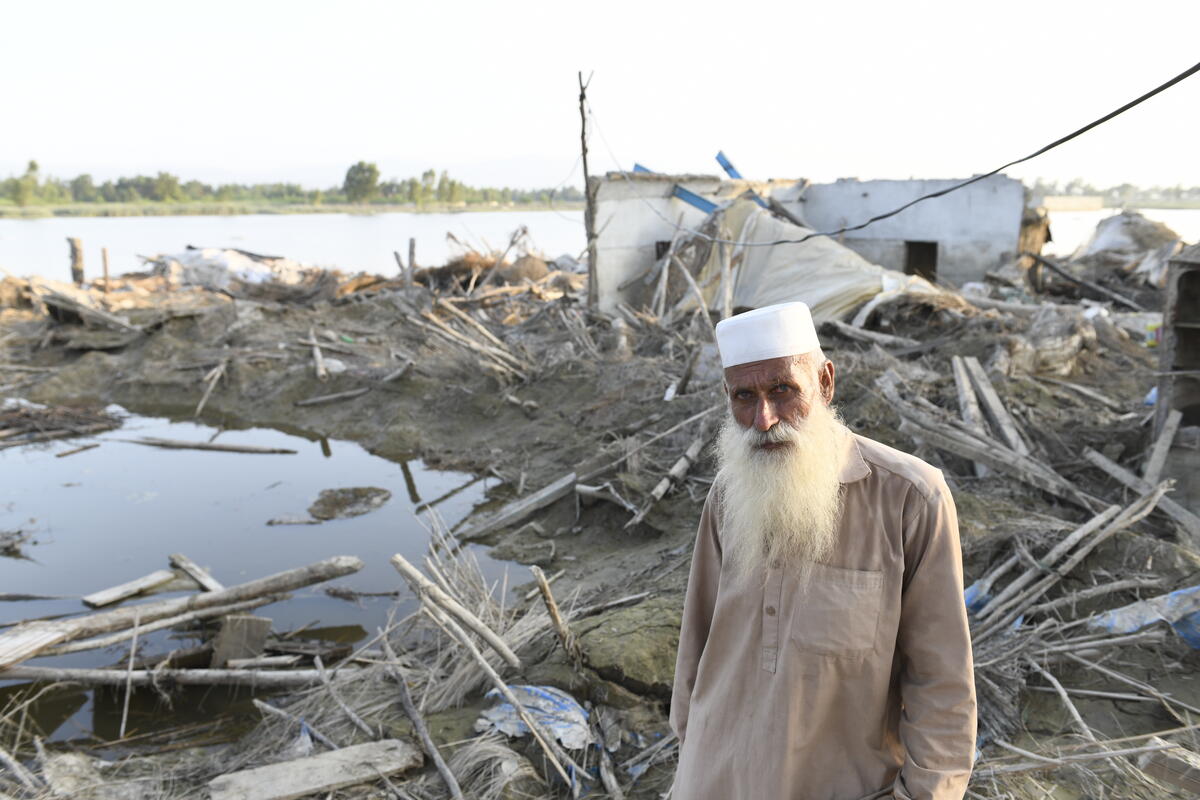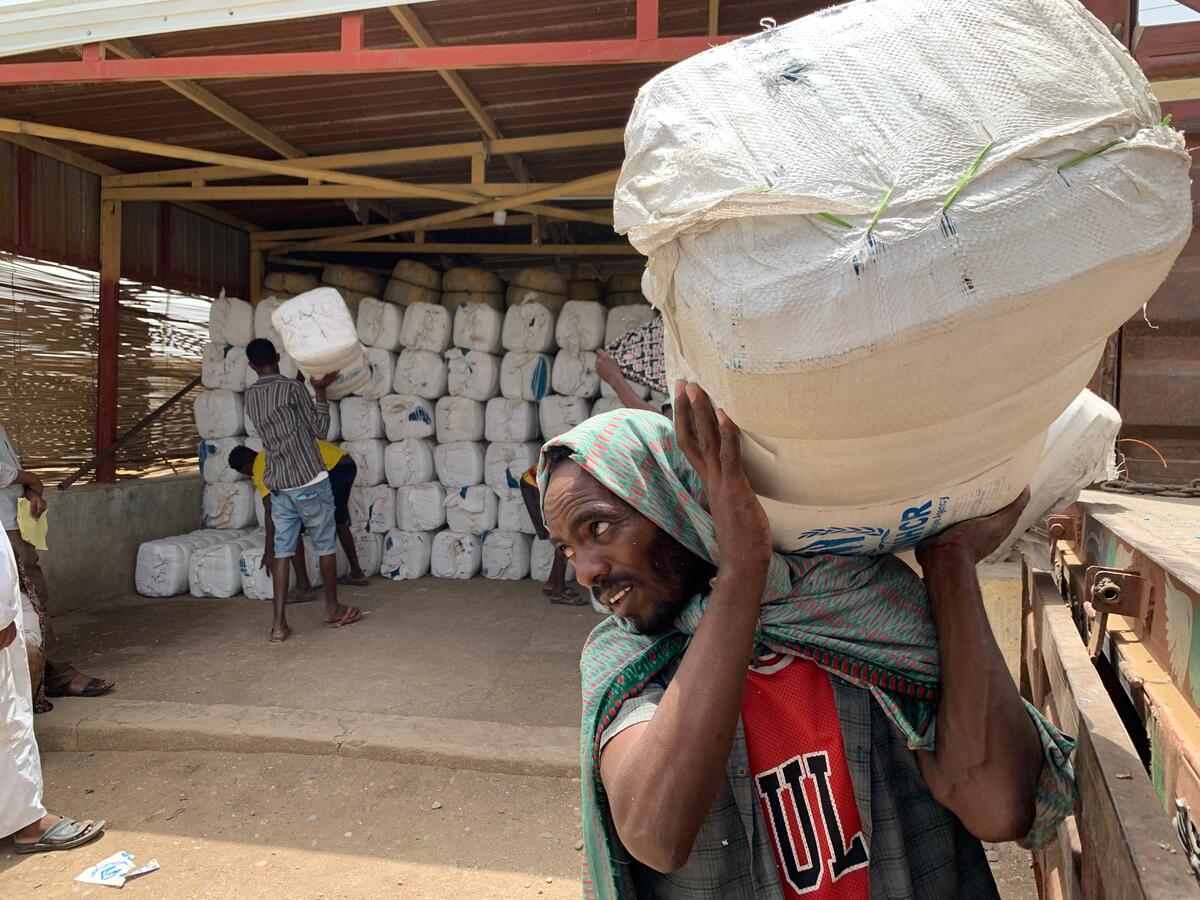UNHCR providing urgent assistance for quake disaster victims
UNHCR providing urgent assistance for quake disaster victims

GENEVA, October 10 (UNHCR) - The UN refugee agency is making available tonnes of urgently needed family tents, blankets, stoves and other basic relief items for tens of thousands of Afghan refugees and Pakistanis made homeless by Saturday's south Asian earthquake.
Initially, UNHCR will provide basic relief supplies for up to 100,000 people using its existing stockpiles throughout the region. Some supplies from UNHCR's Peshawar warehouse, such as hospital tents, family tents, plastic sheeting, mattresses, kitchen sets, emergency lamps and soap, were being trucked on Monday to the badly affected Mansehra district in the North-West Frontier Province. A UNHCR team is now trying to reach the region to check on refugee casualties.
"UNHCR has emergency stockpiles in Pakistan, in neighbouring Afghanistan and elsewhere in the world that can be provided quickly to the victims, but we need the help of helicopters or other transport to get these supplies to people in the most affected areas," UN High Commissioner for Refugees António Guterres said.
"We are extremely concerned about those who have been left with no shelter, no heat and none of the basic essentials required for daily subsistence. They include, in addition to the many Pakistani victims, possibly thousands of Afghan refugees in many camps that are now inaccessible and without communications," Guterres added.
North-West Frontier Province (NWFP), one of the areas affected by the earthquake, hosts some 887,000 Afghan refugees in several camps. UNHCR is particularly concerned about nearly 45,000 Afghan refugees in four camps in the Mansehra district, where whole villages have reportedly been flattened. The camps are Ichiran, Sheikhabad, Barary and Khaki. Initial local government reports from this region on Monday say four refugees in Ichiran camp and eight refugees outside the camps were killed in the quake. Thirty-four refugees in the camps were also reported to be injured. These reports could not be verified by the refugee agency yet. Two UNHCR staff on Tuesday are joining a UN team in the Abbottabad area, and plan to assess the situation of the refugees.
UNHCR staff in Peshawar are also trying to determine conditions for some 100,000 Afghan refugees in three camps in the Haripur district of NWFP - Panian, Padhana and Ghazi. UNHCR provides regular assistance to the camps, including water, sanitation, health care and primary education.
In Geneva, Guterres said UNHCR can immediately provide relief items from its Peshawar warehouse, including family-sized winter tents for up to 14,000 people, hospital tents, plastic sheets, kitchen sets, and other items like mattresses and soap. The agency's Quetta warehouse, further to the south along Pakistan's border with Afghanistan, also has thousands of tents, plastic sheeting, blankets, kerosene stoves, cooking kits, sleeping bags and other items. UNHCR staff in Afghanistan were also checking on possible supplies there which could be provided for the disaster victims. But transport is needed to get all of these items to the quake-affected areas.

UNHCR's emergency and logistics staff at headquarters in Geneva is looking into the possibility of providing other supplies from the agency's global relief stockpiles further afield, including in Dubai, Jordan, Copenhagen.
All of these supplies would need to be replenished quickly, however, so UNHCR can meet any other emergency demands and contingencies. This would mean additional funds would be needed from donors.
UNHCR has 11 offices and more than 420 staff throughout Pakistan and is one of the main operational humanitarian agencies in the region. It has worked in Pakistan for some 25 years and is currently involved in the repatriation of more than 3.5 million Afghan refugees.








